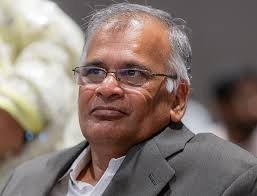Jeyamohan, a prolific writer and literary maverick, has made a significant impact on Indian literature with his thought-provoking works and unique storytelling style. His writing, which often delves into complex social issues and philosophical themes, has earned him critical acclaim and a dedicated following. Let’s explore the life and works of Jeyamohan, the literary maverick behind some of India’s most acclaimed works.
Early Life and Influences
Jeyamohan, born in Nagercoil, Tamil Nadu, India, discovered his love for writing early in life. Growing up, he was deeply influenced by the works of prominent Tamil writers like Pudhumaipithan and Thi. Janakiraman. These writers were known for their realistic and socially aware literature, which left a lasting impact on Jeyamohan. Their ability to address societal issues through powerful storytelling inspired him to pursue similar themes in his own writing. Jeyamohan began to craft narratives that reflected the complexities of human life and the social fabric of India. This early exposure to thought-provoking literature shaped his literary style, leading him to become one of India’s most respected authors. His work is known for its depth, realism, and commitment to exploring the human condition, making him a significant figure in contemporary Indian literature.
Literary Career and Notable Works
Jeyamohan’s literary career spans over several decades and includes a wide range of works, including novels, short stories, and essays. He is best known for his novel “Vishnupuram,” which explores the intricacies of rural life and the impact of globalization on traditional societies. Another notable work is “Kaadu,” a novel that delves into the complexities of human nature and the relationship between man and nature.
Philosophical and Social Themes
One of the hallmarks of Jeyamohan’s writing is his exploration of philosophical and social themes. His works often reflect his deep understanding of human nature and his keen observations of society. Jeyamohan’s writing is characterized by its depth and complexity, inviting readers to ponder the deeper meaning of life and existence.
Literary Influence and Legacy
Jeyamohan’s influence extends beyond his writing, as he has also been a mentor and guide to many aspiring writers. His commitment to literature and his dedication to exploring the human condition have earned him a place among India’s most respected writers. Jeyamohan’s works continue to inspire readers and writers alike, leaving a lasting impact on Indian literature.
Conclusion
Jeyamohan’s contributions to Indian literature are profound, as he continues to challenge conventional norms and push the boundaries of storytelling. His unique perspective and thought-provoking works have earned him a place of honor in the literary world, solidifying his legacy as a literary maverick. As Jeyamohan continues to write and explore new ideas, his influence on Indian literature will undoubtedly endure, inspiring future generations of writers to think boldly and creatively.




One thought on “Jeyamohan: The literary force behind India’s renowned works”
Comments are closed.